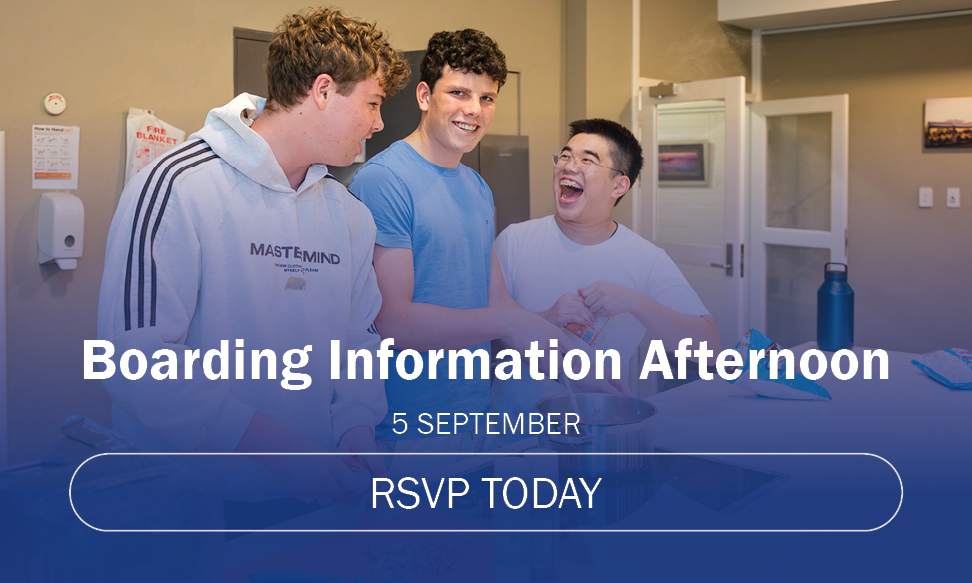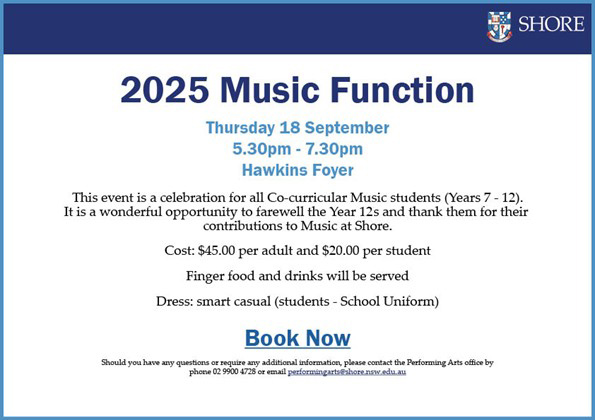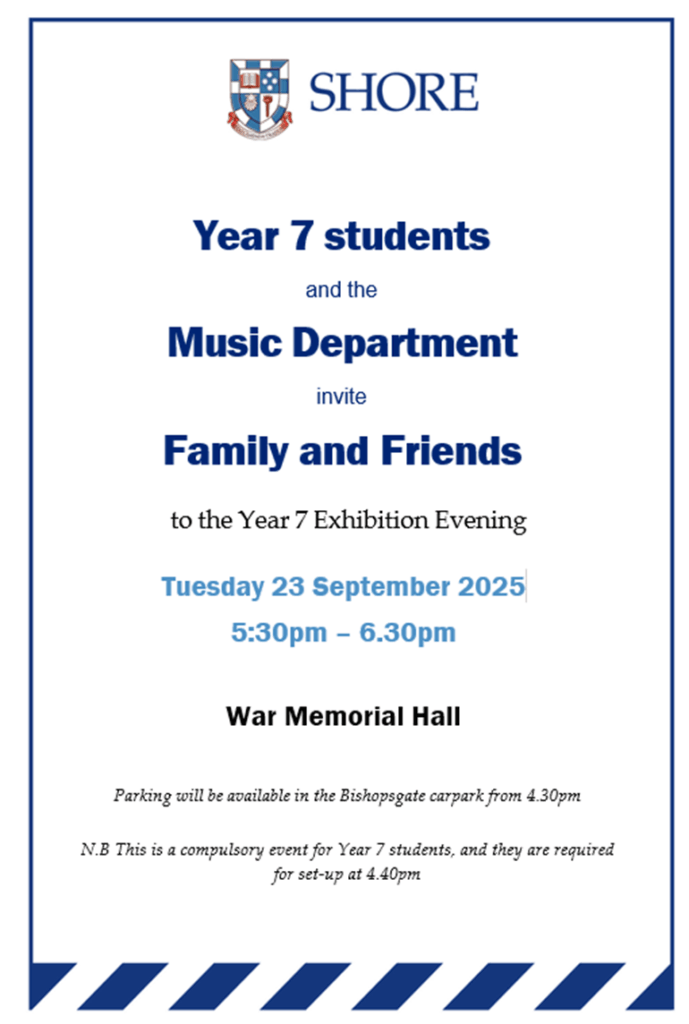Message from the Headmaster
‘Anyone… must work doing something useful with their hands, but they may have something to share with those in need.’
Ephesians 4:28
Artificial Intelligence and the World of Work
Dear Parents and Carers,
Each Semester, I meet with each Head of Department and the Deputy Head, Academic to review aspects of faculty enterprise. The paper presented this semester by our Head of Careers, Ms Vanessa Shirriff, will, I think, be of great interest to parents and the Shore community. One aspect of the meetings is to look forward, to endeavour to ensure that our students are future ready. A key component of this must surely be that they have the skills, training, and agility to function well in a changing work environment. The words below are taken from Ms Shirriff’s report, with her kind consent.

Workforce Disruption
In preparing students to thrive and contribute meaningfully to the world, it is essential to consider the rapid disruption of AI on both the nature of work and the broader employment landscape. Graduate job postings in early 2025 were down 20 percent compared to last year and 38 percent below their 2023 peak. (Hiring Lab)
The Future of Jobs Report 2025 (WEF) indicates that 40 percent of employers anticipate workforce reductions in areas where AI can automate tasks.
Generative AI models could eliminate up to 50 percent of entry-level white-collar jobs and increase unemployment by 10-20 percent within just one to five years. (AI jobs danger: Sleepwalking into a white-collar bloodbath)
Skills-first hiring is gaining momentum in the job market, with 86 percent of hiring managers in Australia and New Zealand adopting this process. (The Hays 2025 Skills Report) The traditional requirement for university degrees is diminishing, while proficiency in AI related skills is increasingly becoming a key requirement.
The Future of Jobs Report 2025 (WEF) highlights that 44 percent of workers’ core skills are expected to change within the next five years.
Employees are increasingly acting as managers of AI agents, assigning them to specific tasks.
As AI capabilities continue to advance, the value of distinctly human traits such as empathy, creativity and ethical reasoning is rising sharply. In fact, 83 percent of employees believe human-centred skills are becoming even more critical (Report: Elevating Human Potential | Workday US). Analytical thinking has emerged as the most sought after core skill, followed by resilience, flexibility, agility, leadership and social influence. (The Future of Jobs Report 2025 (WEF))
Declining graduate employment and the growing emphasis on skills over formal qualifications raise important questions about the long-term value of university degrees, particularly for a school where over 90 percent of students pursue the university pathway.
Micro-credential Programme in “Global Capabilities/Future Skills”
A structured series of skill development courses is proposed, enabling students to define, design, practice and understand key capabilities essential for lifelong growth. At the conclusion of each course, students receive a “digital badge” which can be added to their career portfolio. This initiative could begin as an opt-in trial for selected Year 10 students.
Student Portfolios
With the evolving employment landscape, it is increasingly important for students to compile a portfolio of skills and experiences beyond academic achievements. Recognised accomplishments may include micro-credentials, service, sport, Church participation and part-time employment. This student portfolio of achievements would assist students when applying for Early Entry, scholarships and international institutions.
Ms Vanessa Shirriff
Head of Careers

A major takeaway for me is the need for our students to be agile, prepared for an AI working environment, with education, skills, training and attributes suitable for the middle of the 21st century. This suggests that students may need University plus micro-credentials, student portfolios and attitudes of empathy, creativity, ethical thinking and critical thinking will be to the fore. Being fruitful and faithful employees will continue to have currency and social licence; as the Apostle Paul writes, and as our students have been considering in Chapel in their study of the New Testament book, Ephesians, “anyone… must work doing something useful with their hands, but they may have something to share with those in need.” (Ephesians 4:28) In all schools, how to respond to artificial intelligence (AI), which seems to be developing at an exponential pace, is a work in progress. We expect robotics and other forms of AI to be major features of Shore’s developing approach to innovation and enterprise.
Regards
Dr John Collier
Headmaster
































